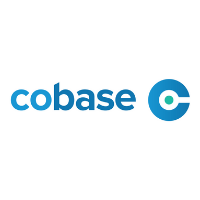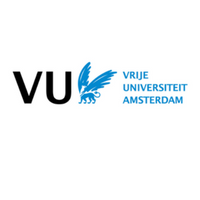International Treasury Management and Corporate Finance
17-01-2022 | François de Witte | treasuryXL |
Registration
In order to be accepted to this certified path it will be asked to complete this application form .
This training will be planned and will start when a sufficient number of participants has been reached. You will then be informed at least 2 months before the course starts.
However, you can still fill in your application and we will contact you.
If you do not wish to be certified but are interested in the topics, almost every course can be purchased independently by clicking on the title in the content below. This certified path is a blended training which contains both physical and virtual classroom, e-mentoring, teamwork, etc.
Description
The treasurer is the custodian of the company’s daily liquidity. He manages, anticipates and secures cash flows by ensuring that financial needs are covered. This cursus will give the ability to assist directly and practically the treasurer of large corporates or to take over the treasury responsibilities in a SME. The various modules will allow acquiring an in-depth knowledge of the various areas of the “Corporate Treasurer” profession.
Objectives
At the end of this programme, the participant will able to:
- assist directly and practically the treasurer of large corporates
- take over treasury responsibilities in a SME.
The various modules will allow to acquire an in-depth knowledge of the different areas of the “Corporate Treasurer” profession.
Programme
Module 0: Introduction to Treasury Management
Speaker: Benjamin Defays / Treasury Manager
- Corporate Treasurer’s responsibilities
- Cash management (bank account opening, closing, KYC, Cash pooling, Payments and bank connectivity)
- Liquidity management (importance of working capital management,
- Risk management (foreign exchange, fraud, credit risk)
- Trade finance (general context, intro to bank guarantees and letters of credit)
Module 1: Financial Maths in Excel (Focus on treasury & corporate finance)
Speaker: Hugues Pirotte / Professor of Finance at Solvay Brussels School
- Focus on treasury & corporate finance
- Time Value of Money
- Vocabulary
- Compounding intervals
- Discount and annuity factors
Module 2: Payments, Cash Management and Banking Relations
Speaker François De Witte / Consultant
- Payments (Process, Tools)
- Liquidity Management
- Cash-Flow Forecasting
- In-House Banking
- Banking Relationship
Module 3: Trade Finance in context of uncertainty
Speaker: Benjamin Defays / Treasury Manager
- General contact, cultural aspects
- Why trade finance in treasury
- Bank Guarantees, Burgschafts, Surety Bonds, Letters of Credit, Cash against Documents
- Alterative security instruments
- Disruptive technologies
Module 4: Introduction to Counterparty Credit Risk Management and Cash Collection
Speaker: Benjamin Defays / Treasury Manager
- Concepts & Practices/Types of Credit Risks
- Understanding Financial Statements and Ratios
- Credit Scoring/Ratings – S&P, Bloomberg models
- Collecting overdue receivables – setting priorities
- Strategies dealing with overdue invoices
- Debt collection services development
Module 5: Practical Aspects of International Finance Regulation
Speaker: Lievin Tshikali
- KYC, GDPR, EMIR, Bale III
- International sanctions and their impact on transactions & overall business activities
- Anticorruption (FCPA, UK Bribery Act)
- EU competition law compliance
- INCOTERMS
- Drafting a contract (main considerations)
Module 6: Risk Management applied to treasury
Speaker: François Masquelier / Group Treasurer
- FX, Interests
- Counterparties
- Others (Reputation, etc…)
- Objectives of Hedge Accounting
- Required documentation and formalisation of Hedge Accounting relationships
- Different types of hedges (Fair Value, Cash Flow, Net Investment)
- Booking adjustments of different hedge types
- Typical examples of different hedge types
Module 7: Technologies applied to treasury
Speaker: François Masquelier/ Group Treasurer
- New Technologies
-
- Blockchain, Crypto-currencies, Smart Contracts
- Treasury Console (Bloomberg, Thomson Reuters)
- TMS, Financial Technology
Module 8: Cyberfraud: what you need to know to manage this ever increasing risk
Speaker: Thierry Hamon / Cash management & security expert
- Getting an overview of the different cyberattacks techniques currently used
- Understand the possible consequences of cyberfraud and what needs to be protected
- Learn 50 ways to protect
Some homework might be proposed for some modules, there will be continuous control in the form of intermediary exams (under the form of QCM) and a final exam will be sanctioned by an attestation delivered by ATEL (The Luxembourg Association of Corporate Treasurers).
There might also be one or two “extra-activity”, such as a visit in a bank trading room or/and a special guest speaker addressing the cursus participants on a specific subject (still to be defined, optional events).
Target Audience
Anyone willing to acquire an in-depth knowledge in corporate treasury and wishing to exercise this knowledge in practice.
Prerequisites
- Basic background in finance or accounting
- For the Advanced Excel workshop, a preliminary (good) knowledge in Excel is required.
Course Material
The course material can be downloaded free of charge via your portal the day before the start of the course (download the Client Portal User’s Guide here).
Certificate
At the end of the programme, the participants will receive a “Certificate of Attendance” delivered by the House of Training, and an attestation of “Exam Success Pass” delivered by ATEL.
In order to get certified, an 80% rate of attendance and a 60% average score on the examinations are required.
The participants will also receive a one-year free membership to ATEL (www.atel.lu) giving a number of advantages.
Register Here
François de Witte











